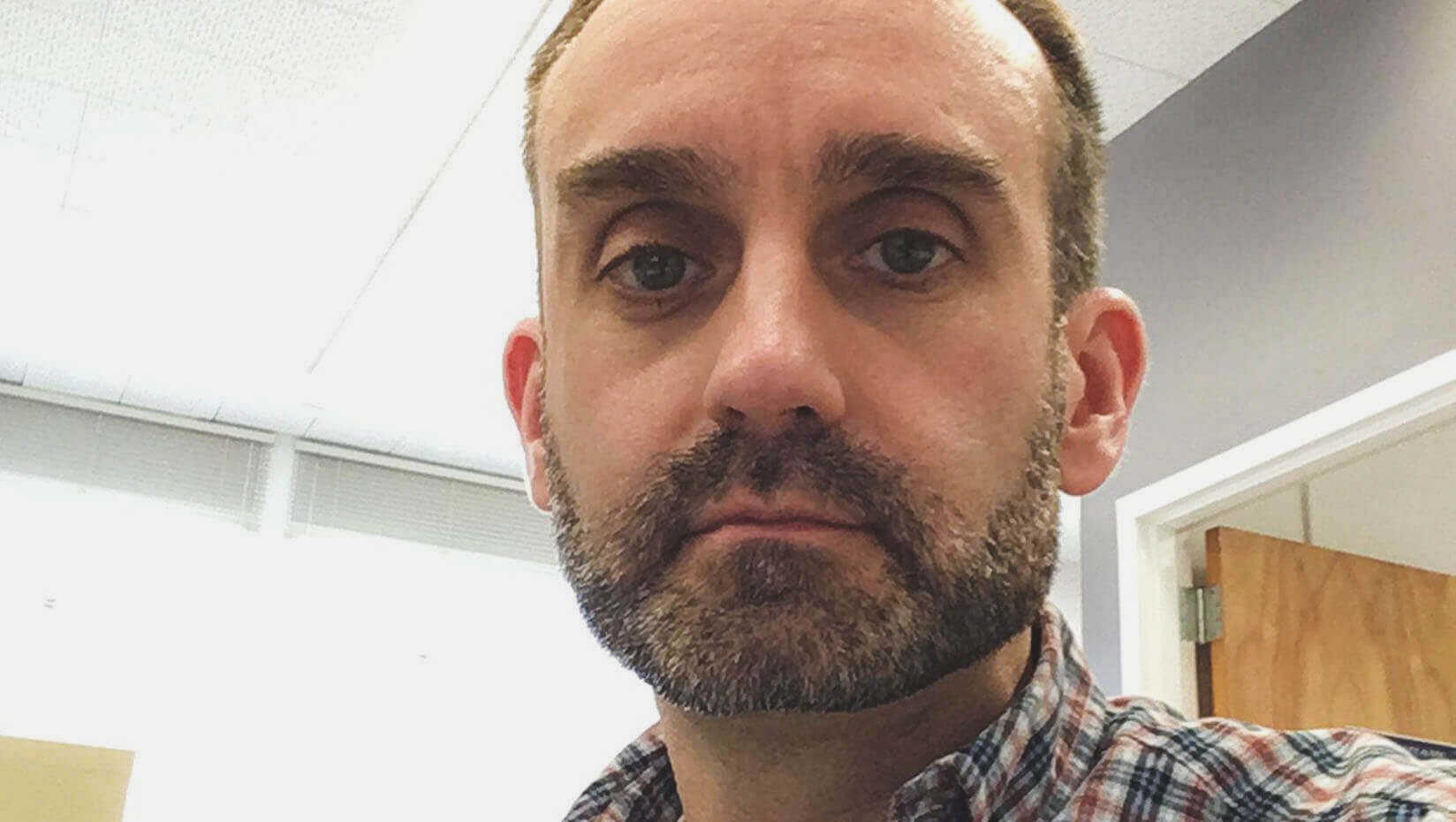
Nicholas Slabyj: Rediscovering a family legacy
University of Maine Master of Arts in Interdisciplinary Studies student Nicholas Slabyj has long been interested in family history. The son and grandson of Ukrainian immigrants, he readily acknowledges the impact of his grandparents, Olha and Roman Fedoriw, on his life.
“I can still recall stories my grandmother told me to ensure that I knew what our family stood for,” he wrote in an email. “The most important aspects of their lives in Chernivtsi, Ukraine, was the forging of relationships with people of various backgrounds, and to always expand oneself through education. My grandfather attended what is now the Yuriy Fedkovych Chernivtsi National University for a baccalaureate and law degree, and my grandmother attended Academia Superioara de Croitorie si Mode, a fashion school in Bucharest, in the 1930s.”
His grandparents sustained their cultural sensitivity and civic-mindedness in their personal and professional relationships after arriving in Boston in 1948. Olha spoke of navigating an ethnically diverse workforce in order to emphasize the importance of acceptance and community.
His grandmother’s stories of how strangers treated “an Eastern European woman with respect and kindness,” woven with her memories of Ukraine under Soviet and Nazi occupation taught Slabyj many valuable life lessons.
Slabyj first visited Chernivtsi in May 2018 with his parents, returning in 2019 to attend an icon writing course at the Ukrainian Catholic University in Lviv. Each trip increased his interest in Ukrainian cultural traditions exponentially, crystallizing his desire to learn to read Ukrainian.
The benefits of becoming a competent reader would be two-fold — supporting his graduate studies focused on the philosophical and theological interpretation of Ukrainian religious iconography within a framework of historical and political contexts, while enhancing understanding of his family history.
This past summer, Slabyj received a merit scholarship to enroll in Ukrainian for Reading Knowledge, a seven-week, eight-credit course offered at the Harvard Ukrainian Research Institute (HURI) in Cambridge, Massachusetts. The course is designed to support graduate students in humanities and social sciences who wish to advance their research by mining resources available in Ukrainian. Due to the pandemic, HURI classes were conducted online this year.
While engaged in his summer coursework, Slabyj was reminded of the role his grandparents played in advocating for establishment of HURI more than 40 years ago. He rediscovered an invitation to a HURI donors’ event neatly folded in the pocket of his grandfather Roman’s tuxedo, which Olha had given him after Roman’s death in 1994.
This invitation, dating back to 1982, prompted Slabyj to begin researching the history of HURI, and led him to a June 2020 article penned by the President of the Ukrainian Studies Fund at Harvard, Bohdan Vitvitsky. In the Ukrainian Weekly article, Vitvitsky acknowledged the role the Ukrainian diaspora in the United States and Canada played in establishing HURI, noting that donations totaling more than $3.8 million (in 1970s dollars) from 13,000 Ukrainian community members funded the institute that continues to foster research and scholarship in Ukrainian history and culture.
“There would not exist a Ukrainian program at Harvard had it not been for the generosity of the Ukrainian community, as mobilized by the extraordinary efforts of the Ukrainian Studies Fund,” wrote Vitvitsky.
Today, Slabyj honors his family’s legacy as he benefits from his grandparents’ tenacity, commitment and generosity. “I could not be more proud and honored to have known them and be inspired from their hard work and sacrifice, since our accomplishments in this world are always on the shoulders of those who came before us,” he wrote.
Slabyj, who is a full-time employee in the College of Education and Human Development, also acknowledges the impact of Michael Grillo, the chair of his graduate committee, on his studies. “Michael has always supported my academic pursuits, encouraging me to discover and follow my own personal interests. I am truly grateful for Michael as a colleague and friend.”
Slabyj seeks to contribute to the Ukrainian cultural community through his academic endeavors. He expects to complete his M.A. in Interdisciplinary Studies in 2021.
Contact: Joan Perkins, joan.perkins@maine.edu
